
Wolfgang Petersen was a German filmmaker. He was nominated for two Academy Awards for the World War II submarine warfare film Das Boot (1981). His other films include The NeverEnding Story (1984), Enemy Mine (1985), In the Line of Fire (1993), Outbreak (1995), Air Force One (1997), The Perfect Storm (2000), Troy (2004), and Poseidon (2006).

Michael Benjamin Bay is an American film director and producer. He is best known for making big-budget, high-concept action films characterized by fast cutting, stylistic cinematography and visuals, and extensive use of special effects, including frequent depictions of explosions. The films he has produced and directed, which include Armageddon (1998), Pearl Harbor (2001) and the Transformers film series (2007–present), have grossed over US$7.8 billion worldwide, making him one of the most commercially successful directors in history.

Pay It Forward is a 2000 American romantic drama film directed by Mimi Leder. The film is based loosely on the novel of the same name by Catherine Ryan Hyde. It is set in Las Vegas, and it chronicles 11- to 12-year-old Trevor McKinney's launch of a goodwill movement known as "pay it forward". It stars Haley Joel Osment as Trevor, Helen Hunt as his alcoholic single mother Arlene McKinney, and Kevin Spacey as his physically and emotionally scarred social studies teacher Eugene Simonet. The film was released on October 20, 2000 to mixed-to-negative reviews and was a box office disappointment, grossing $55.7 million worldwide against a $40 million budget.
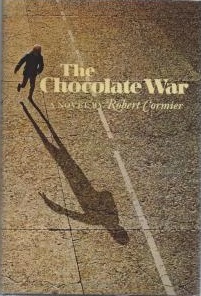
The Chocolate War is a 1974 young adult novel by American writer Robert Cormier. It was adapted into a film in 1988. Although it received mixed reviews at the time of its publication, some reviewers have argued it is one of the best young adult novels of all time. Set at a fictional Catholic high school, the story depicts a secret student organization's manipulation of the student body, which descends into cruel and ugly mob mentality against a lone, non-conforming student. Because of the novel's language, the concept of a high school secret society using intimidation to enforce the cultural norms of the school and various characters' sexual ponderings, it has been embroiled in censorship controversies and appeared as third on the American Library Association's list of the Top 100 Banned/Challenged Books in 2000–2009. A sequel was published in 1985 called Beyond the Chocolate War.
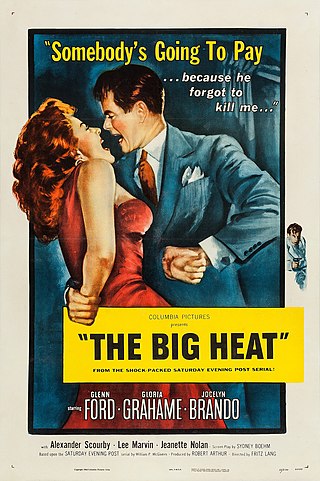
The Big Heat is a 1953 American film noir crime film directed by Fritz Lang starring Glenn Ford, Gloria Grahame, and Jocelyn Brando about a cop who takes on the crime syndicate that controls his city.
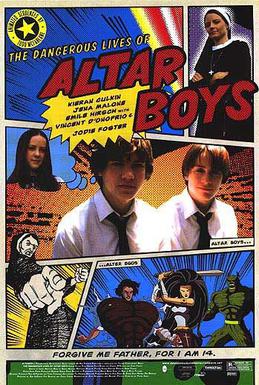
The Dangerous Lives of Altar Boys is a 2002 American comedy-drama film directed by Peter Care and written by Jeff Stockwell and Michael Petroni based on Chris Fuhrman's 1994 semi-autobiographical novel of the same name. The film stars Emile Hirsch, Kieran Culkin, Jena Malone, Jodie Foster and Vincent D'Onofrio.

Little Big League is a 1994 American family sports film about a 12-year-old who suddenly becomes the owner and then manager of the Minnesota Twins baseball team. It stars Luke Edwards, Timothy Busfield, and Ashley Crow. The film is director Andrew Scheinman's first and only feature film directorial project.

Left Behind: The Movie is a 2000 Christian apocalyptic thriller film, based on the novel of the same name by Tim LaHaye and Jerry B. Jenkins. It is directed by Vic Sarin and stars Kirk Cameron, Brad Johnson, Chelsea Noble, Janaya Stephens, Gordon Currie, and Clarence Gilyard.
Doug Anthony Hutchison is an American character actor, known for playing disturbing and antagonistic characters. Such characters include Obie Jameson in the 1988 film The Chocolate War, Sproles in the 1988 film Fresh Horses, the sadistic corrections officer Percy Wetmore in the 1999 film adaptation of the Stephen King novel The Green Mile, Eugene Victor Tooms on the series The X-Files, and Horace Goodspeed in Lost. He owns a production company named Dark Water Inc. In 2011, at the age of 51, he received widespread criticism when he married 16-year-old model Courtney Stodden.

Don't Raise the Bridge, Lower the River is a 1968 British comedy film directed by Jerry Paris, produced by Walter Shenson and starring Jerry Lewis. It was released on 12 July 1968 by Columbia Pictures and is based on Max Wilk's novel of the same title, with the original Connecticut locale moved to Swinging London and Portugal.

Blood & Chocolate is a 2007 fantasy-horror film directed by Katja von Garnier. It was written by Ehren Kruger and Christopher B. Landon and is loosely inspired by Annette Curtis Klause's 1997 young adult novel of the same name.

Black Beauty is a 1994 family drama film, written and directed by Caroline Thompson in her directorial debut. The fifth cinematic adaptation of Anna Sewell's 1877 novel of the same name, the film stars Andrew Knott, who, the year prior, had played Dicken in The Secret Garden, as well as Sean Bean, David Thewlis and Alan Cumming as 'Black Beauty'. Produced and distributed by Warner Bros., under their Warner Bros. Family Entertainment label, the film’s story is told as an autobiography of the horse Black Beauty, with Cumming’s voiceover narration as ‘Beauty’ leading viewers through the trials of the horse’s life, through his own eyes.
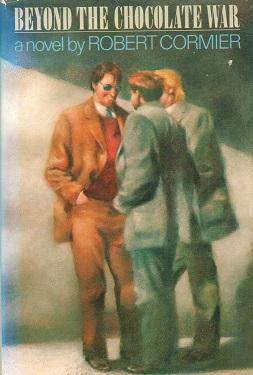
Beyond the Chocolate War is the sequel to the award-winning book The Chocolate War by Robert Cormier. The sequel received an Honor List citation from the Horn Book Magazine in 1986.

Rusty Goffe is an English actor, best known for his appearances in Willy Wonka & the Chocolate Factory, Star Wars Episode IV: A New Hope, and the Harry Potter franchise. He played Goober on Stupid!.
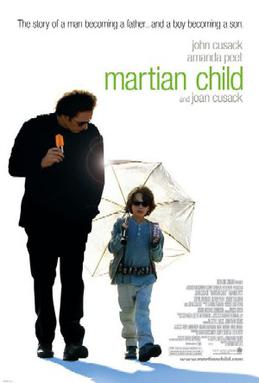
Martian Child is a 2007 American comedy-drama film directed by Menno Meyjes and based on David Gerrold's 1994 novelette of the same name. The film stars John Cusack as a writer who adopts a strange young boy who believes himself to be from Mars. The film was theatrically released on November 2, 2007, by New Line Cinema.
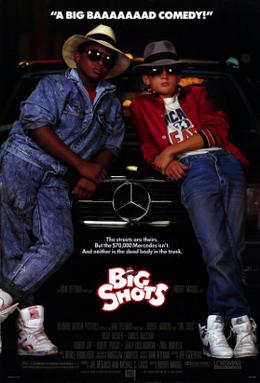
Big Shots is a 1987 American adventure comedy film directed by Robert Mandel, starring Ricky Busker and Darius McCrary.
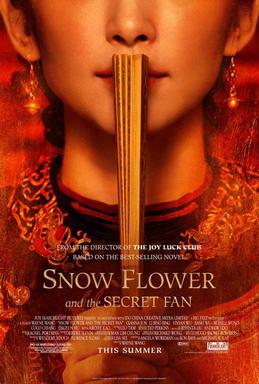
Snow Flower and the Secret Fan is a 2011 historical drama film directed by Wayne Wang, based on the novel of the same name written by Lisa See. The film stars Gianna Jun, Li Bingbing, Vivian Wu, Hugh Jackman, and Archie Kao.

Charlie and the Chocolate Factory is a media franchise based on the 1964 novel of the same name by British author Roald Dahl. It includes two books, three live-action theatrical films, three video games and miscellaneous other properties, such as touring musicals and theatrical adaptations, various merchandise and defunct amusement park ride.
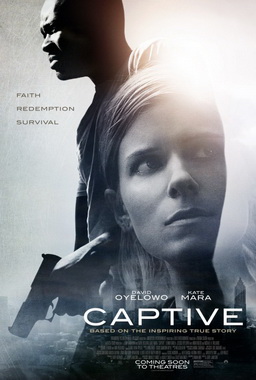
Captive is a 2015 American crime-drama thriller film directed by Jerry Jameson and written by Brian Bird and Reinhard Denke, based on the non-fiction book Unlikely Angel by Ashley Smith.


















